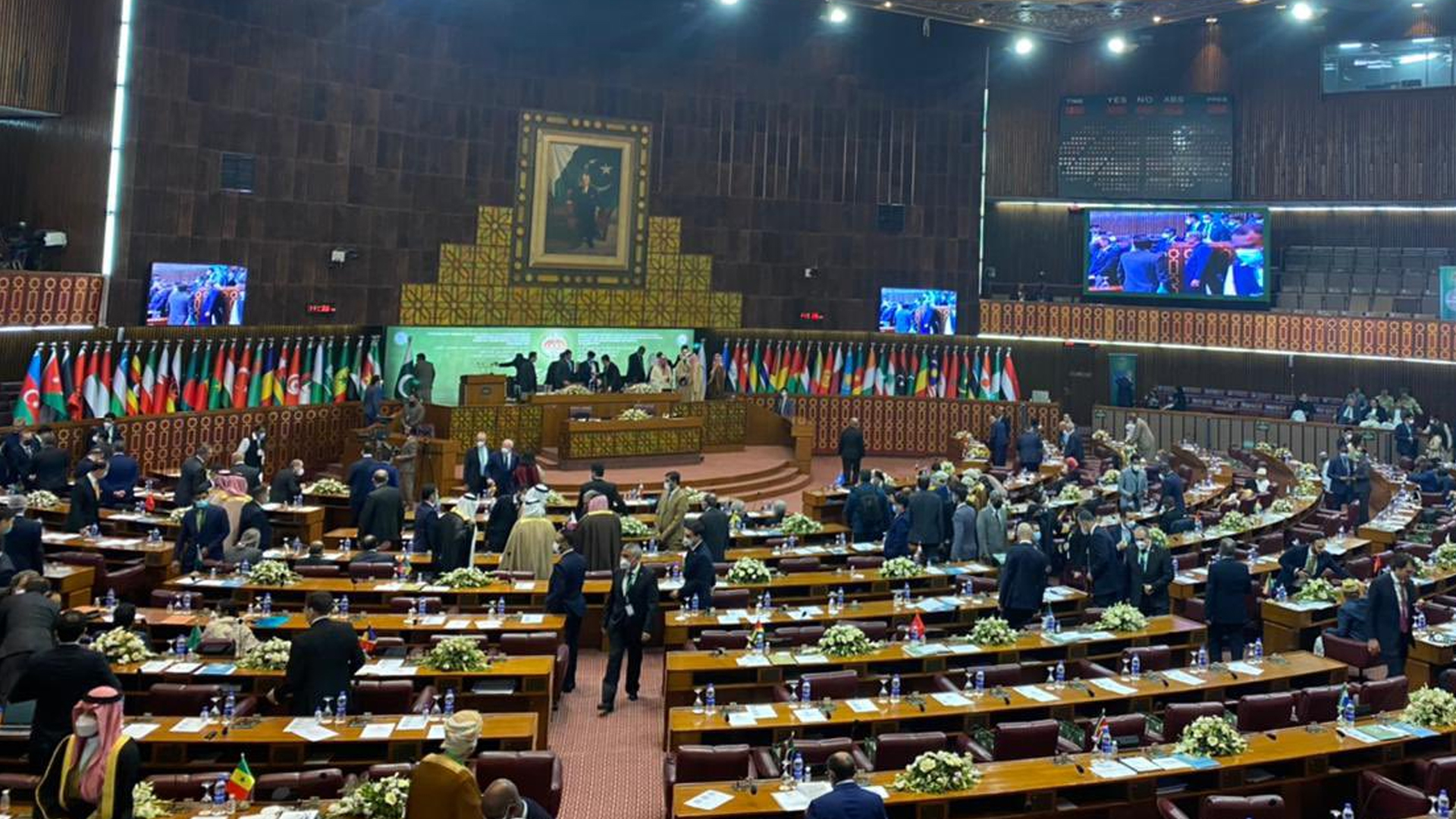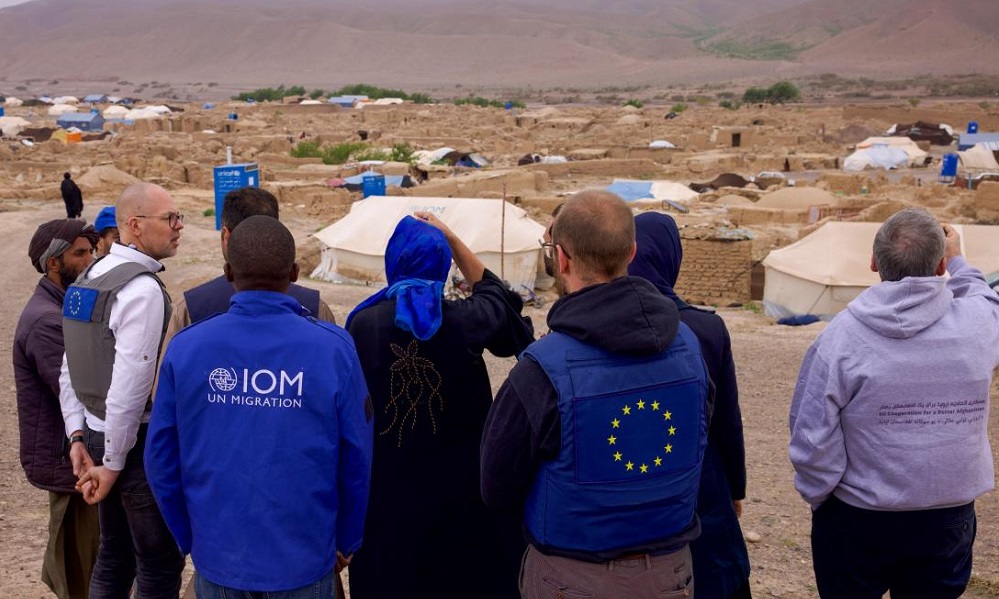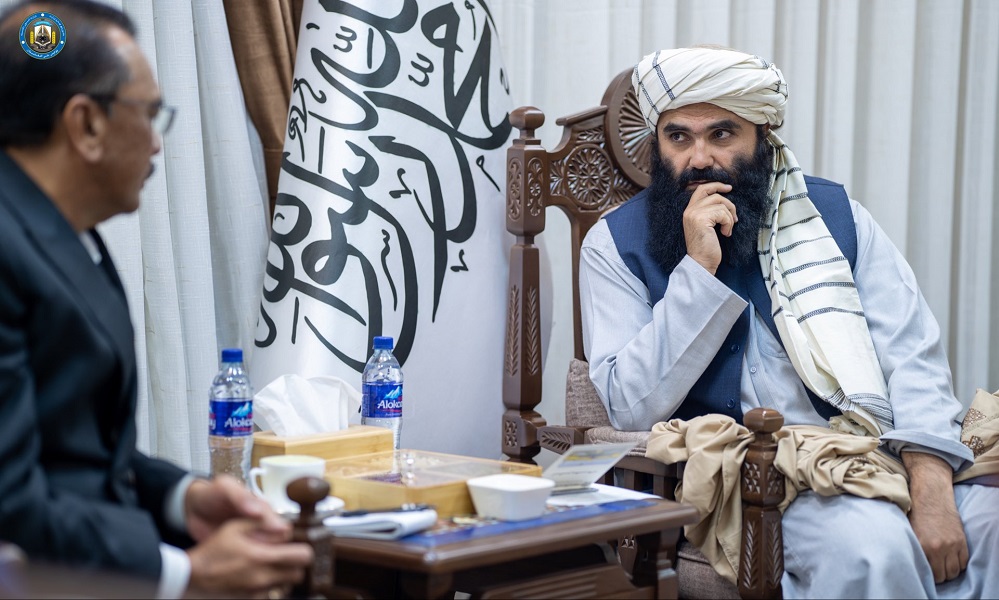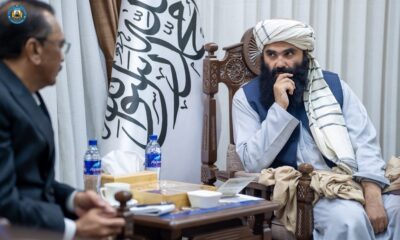Latest News
Islamic countries pledge fund to stave off Afghanistan ‘chaos’

Islamic countries pledged on Sunday to set up a humanitarian trust fund for Afghanistan as, with millions facing hunger and a harsh winter setting in, Pakistan’s prime minister warned of chaos if the worsening emergency was not urgently addressed.
The crisis is causing mounting alarm but the international response has been muted, given Western reluctance to help the Islamic Emirate of Afghanistan (IEA) government, which seized power in August, Reuters reported.
“Unless action is taken immediately, Afghanistan is heading for chaos,” Prime Minister Imran Khan told a meeting of foreign ministers from the Organisation of Islamic Cooperation in Islamabad on Sunday.
The trust fund, announced by Pakistan’s foreign minister Shah Mahmood Qureshi, will be set up under the aegis of the Islamic Development Bank.
Allowing Afghanistan access to reserves frozen outside the country would be key to preventing economic collapse, participants in the meeting – which included representatives from the United Nations, United States, European Union and Japan – said in a statement.
But it was unclear how much the fund would contain and the meeting did not provide official recognition to the IEA government.
Acting Afghan foreign minister Amir Khan Muttaqi said the government had restored peace and security and done much to address demands for more inclusiveness with respect for human rights, including the rights of women.
“All must acknowledge that political isolation of Afghanistan is not beneficial for anyone, therefore it is imperative that all support the prevailing stability and back it both politically and economically,” he said.
IEA officials have previously asked for help to rebuild Afghanistan’s shattered economy and feed more than 20 million people threatened with hunger.
Some countries and aid organizations have begun delivering aid, but a near-collapse of the country’s banking system has complicated their work.
Qureshi said unlocking financial and banking channels was essential “because the economy can’t function and people can’t be helped without a banking system.”
The scale of the challenge has been underlined by crowds gathering outside the newly reopened passport office in Kabul, where hundreds have been lining up for passports that would enable them to leave the country.
Beyond immediate aid, Afghanistan needs help ensuring longer-term economic stability. Much will depend on whether Washington is willing to unfreeze billions of dollars in central bank reserves and lift sanctions that have caused many institutions and governments to shy away from direct dealings with the IEA.
Muttaqi said the IEA would not allow Afghanistan to be used as a base for attacks on other countries and he said no reprisals would be carried out against officials of the former government.
Latest News
EU allocates 17 million euros to support Afghans on the move

The European Union signed an agreement worth 17 million euros with the International Organization for Migration (IOM) to improve access to basic services, increased economic opportunities and protection for Afghans on the move and their host communities in Afghanistan.
The needs of women and girls are a particular focus of the programme, EU said in a statement released on Thursday.
The statement noted that from January 2023 until April 2024, over 1.5 million Afghans returned from Pakistan and Iran.
“I am deeply moved by the hardship returnees face when being deported to Afghanistan. In a country suffering from poverty and climate change, and in a city that just saw devastating earthquakes, this truly is a crisis within a crisis.”, said Peteris Ustubs, Director for the Middle East, Asia and Pacific of the European Commission’s Department for International Partnerships during the signing ceremony at the IOM transit centre in Herat.
Raffaella Iodice, EU Chargée d’Affaires a.i. to Afghanistan, added “The solidarity of the Afghan people towards their brothers and sisters is an inspiration. We must assure that communities hosting and helping new arrivals are supported. The partnership with IOM ensures access to essential services and provides protection for Afghan returnees and their host communities. As women and girls can be particularly affected, we make sure that all members of society can benefit”.
“IOM’s continued partnership with the EU has been critical in enabling our teams to reach hundreds of thousands of Afghan returnees and other vulnerable communities in the country”, said IOM Afghanistan Chief of Mission, Maria Moita. “Thanks to this renewed commitment, we will be able to focus on addressing the immense challenges in the areas of return and contribute to reintegration, social cohesion, and longer-term solutions for those communities.”
This additional contribution is part of a 5-year programme that is being implemented across Afghanistan and in four countries in the region. It builds on the EU’s previous support to IOM to improve the wellbeing of Afghans forced to return to the country, EU said.
Latest News
Malaysia vows to share its experiences on cyber security with IEA

Acting Minister of Interior Affairs Sirajuddin Haqqani has said in a meeting with a delegation from Malaysia in Kabul that Malaysia is an advanced country and that Afghanistan should use is experiences.
According to a statement released by the Interior Ministry, Haqqani, in the meeting on Thursday, emphasized that security is ensured in Afghanistan and unity among Afghans has been restored.
He stated that the Islamic Emirate wants to have close relations and engagement with the world, especially Islamic countries.
The Malaysian delegation consists of representatives of the Ministries of Interior and Defense, and advisers of the Prime Minister’s Office.
According to the statement, a member of the delegation provided information about Malaysia’s capabilities in cyber security and tackling cyber crime, and said that Malaysia will share its experiences in this field with the Islamic Emirate.
In the meeting, the two sides also discussed the fight against drugs, police training, bilateral cooperation and exchange of experiences between Malaysia and Afghanistan.
Latest News
Girls’ education is a ‘vital issue’ for Afghanistan: Karzai

Former president Hamid Karzai said in a meeting with Iran’s ambassador and special representative, Hassan Kazemi Qomi, that education of girls was a “vital issue” for Afghanistan.
Karzai said he appreciated Iran’s cooperation and its standing with the Afghan people, especially Iran’s contributions to education in Afghanistan.
During the meeting, Karzai said peace and stability in the region are in the interest of all regional countries.
-

 Latest News5 days ago
Latest News5 days agoPakistan’s frontiers minister stresses ‘dignified’ return of Afghan refugees
-

 Latest News3 days ago
Latest News3 days agoRashid Khan named AWCC’s brand ambassador
-

 Regional4 days ago
Regional4 days agoIranian president lands in Pakistan for three-day visit to mend ties
-

 Climate Change5 days ago
Climate Change5 days agoMassive river flooding expected in China, threatening millions
-

 World5 days ago
World5 days agoTwo Japan navy helicopters crash, one body found, 7 missing
-

 Sport4 days ago
Sport4 days agoKolkata beat Bengaluru by one run in IPL as Kohli fumes at dismissal
-

 Sport4 days ago
Sport4 days agoACL: Aino Mina 3-0 Istiqlal Kabul; Attack Energy 3-0 Khadim
-

 Climate Change4 days ago
Climate Change4 days agoRescuers race to reach those trapped by floods in China’s Guangdong
























